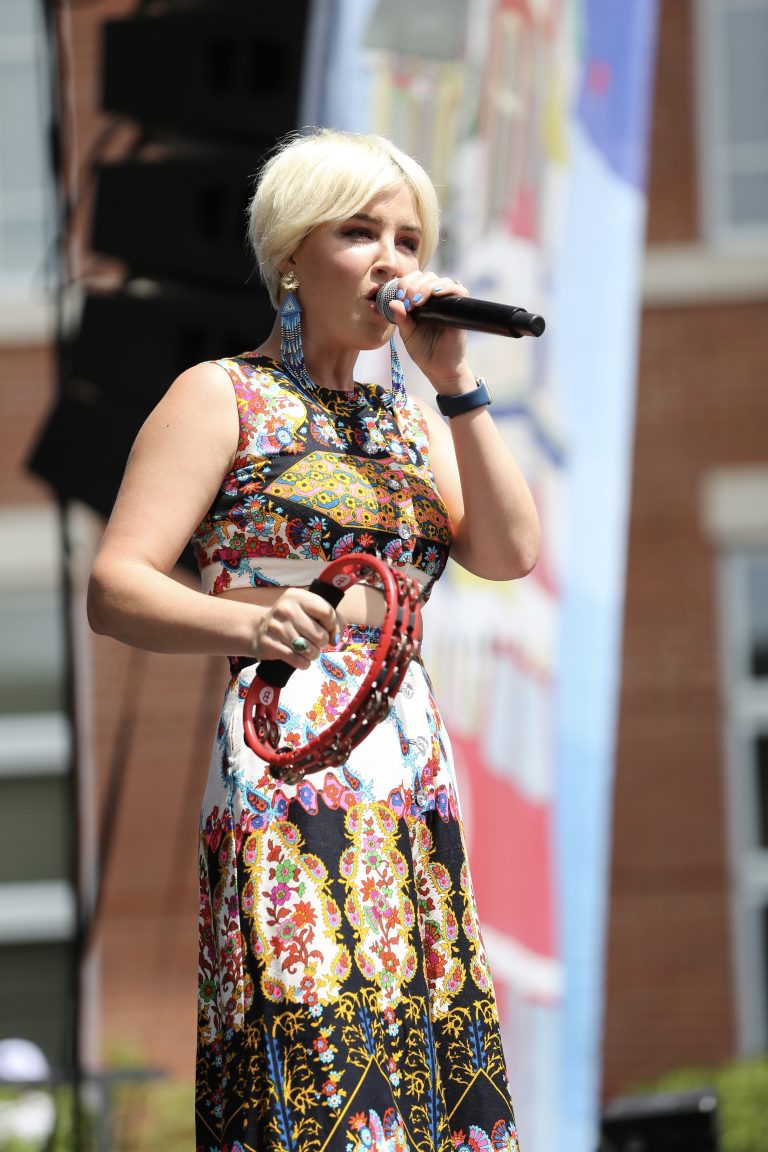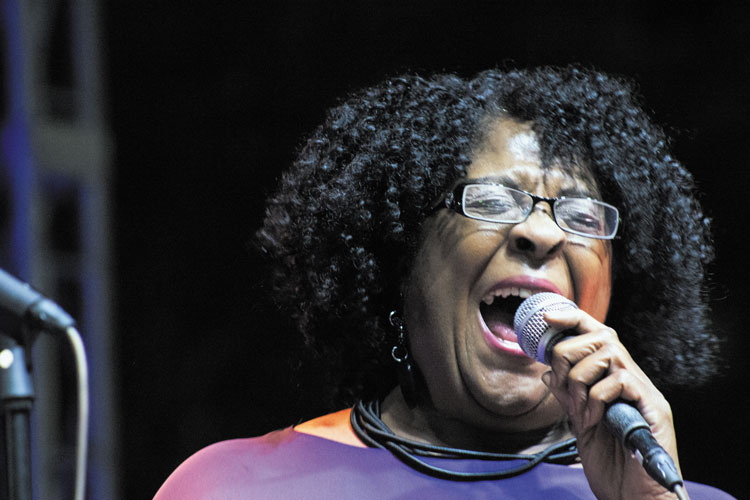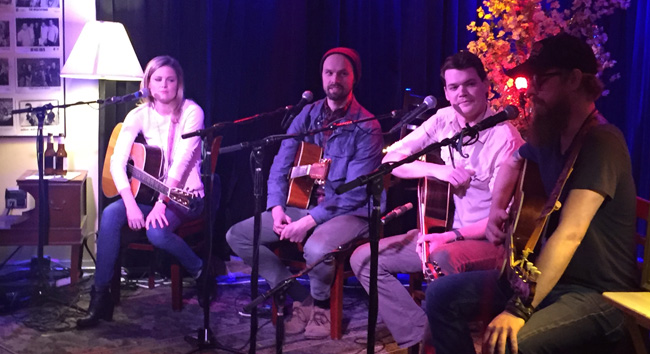
“Larry’s in the Round” is a bi-weekly singer-songwriter series being held at Proud Larry’s on the first and third Wednesday of each month this semester. Every other week, a diverse group of four local singer-songwriters take the stage for an evening of storytelling, insights into the songwriting process, and most importantly – the kind of music you can feel in the hairs on the back of your neck. The featured guests were Anne Freeman, Sean Kirkpatrick, Austin Smith, and Will Griffith.
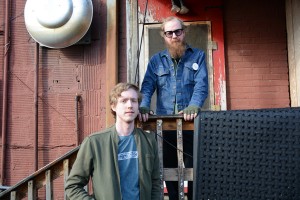
The project is being co-curated by two men who share the distinction of being not only fellow Larry’s employees, but also both local musical heavyweights. Will Griffith, recipient of the coveted “Favorite Bartender” award in TLV’s 2016 Townies Awards, is the man who comprises the mythos that is “Billy Shakes,” and performs with Kell Kellum as duo “The Great Dying.” Shane Prewitt meanwhile, has drummed for several Oxfordian bands of yesteryear such as E Meters and Unwed Teenage Mothers, and currently is the drummer for soulful local band Reels. I caught up with Will and Shane at Larry’s, to talk psychology, songwriting, and their bold and dynamic plan to put an end to awkward jam-session “first dates.”
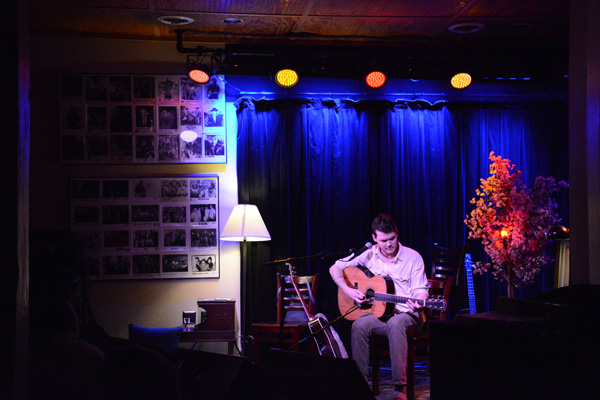
Will Griffith: So my favorite thing to do when I was living in Nashville was to go to these writers’ rounds. It was always four musicians, they’d all be onstage and tell stories and joke with each other. They’d tell a very small story about their craft and process, then they’d sing a couple songs. If they knew each other’s songs, they’d sing together, and play along. The camaraderie was amazing, and I liked how intimate it was. So I told Shane about it, we started brainstorming. We want to keep all the songwriters in town supporting each other by attending this.
Shane Prewitt: I guess the big difference between what I’ve heard those are and what we’re doing, is instead of playing two songs, hop offstage, we’ve kind of set it up where they’re all sharing the stage for half of it. We give them a chance to play three or four originals, instead of just busting in and out. We have a few stock questions I ask them about process, aspirations, history… I have a psychology background, so just getting a little bit of that in there is almost the most interesting part to me. Kind of getting into the mind of the songwriter.
WG: [Shane] had a really good idea for the format. All the ones I’ve been to, everybody stayed onstage the whole time. What we did was, to start it off we were all onstage together, and Shane asked us all the same question in succession. We answered, everybody was sitting down and listening, loving it. Then, we each played one song, took a break, and then each played a three song solo set.
SP: We compiled a list of almost thirty different people that live around Oxford, Taylor, and Water Valley. Almost everyone is a front person with a guitar, or a solo act, but it’s not at all genre-specific. We’re trying to show everything that’s happening in the area. That’s kind of the point, to be a little exposure… Every week, I’ve made sure to schedule a range of ages – someone young that’s newer and hasn’t really gotten out there, at least one person that’s thirty-plus, some people as old as fifty-five. Always a female every week… We’re just trying to show that we have a big range of music happening.
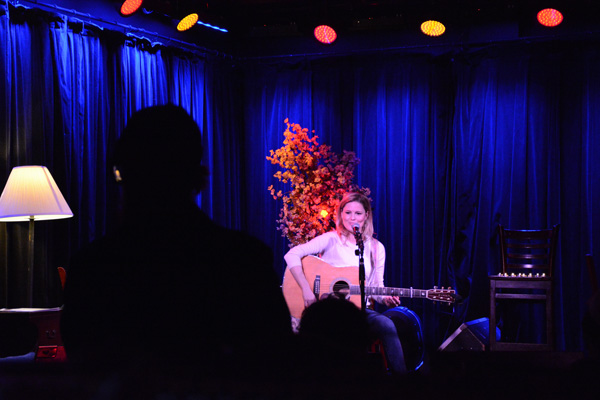
WG: Between everybody that he and I know, it’s punk rock, it’s indie, it’s singer-songwriter, it’s country, it’s… You know, everything.
Caleb: So you try to program groups of musicians that go together?
SP: Yeah, it’s like programming groups that are diverse enough within the week. It’ll never be four friends onstage, you know what I mean? I’ve shied away from that, because I know there are clusters of people who play together all the time. I was trying to ensure that there wouldn’t be two of those people onstage [together]. So the dialogue is kind of more organic, and you’re learning from whomever you’re sitting next to.
WG: You’re not playing songs with your fellow band-mate that you play songs with every night. You’re playing with new people.
SP: Yeah, it avoids giving it that rehearsed quality.
WG: [Our first show on Feb. 17] was a really special night; we had a great turnout. Everybody was responsive and quiet, just into it. For the week after that, I just heard how good a time everybody had, so I think the next one will be even better.
WG: Wednesdays are the perfect night to do it. We try to have free music on Wednesday night most of the time.
SP: Definitely, it fills a good void for music during the week, there are rarely events anywhere in town. It’s like this crossover period where you’re a little bored, you want a couple drinks, but you don’t really want to stand up and party. So you come and sit down…
WG: There you go. It might be the first time that a lot of people get out for the week, Wednesdays.
SP: Not us, but…

WG: No. We kind of start and don’t stop. But even if it’s not the night you’re performing, we still want you to come out. We want this to be writers singing for other writers. That’s my favorite thing as a songwriter. I want there to be a community of people sharing with each other like that, enjoying it, getting to know each other through song intimately. I hope people meet each other and start the genesis of bands. It’s a great place for musicians to mingle.
